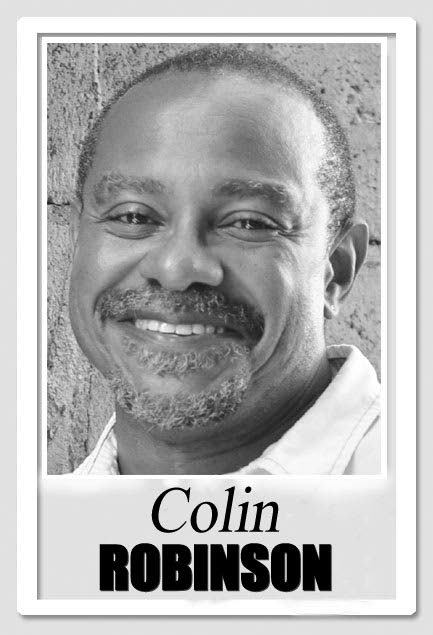Making up the Caribbean

Ellie Mannette, father of the modern steel drum, dies at 90. Under the New York Times obituary headline was a story of “a Trinidadian musician known in the United States as the father of the modern steel drum,” that sought to document Mannette’s place in American history—“Mannette Instruments in Morgantown…a major supplier of the instruments in the United States,” his training of “students in tuning at West Virginia University for nearly 20 years. Numerous American universities now have steel-pan ensembles of their own,” his “1960s…travel…to the US to help develop the Navy Steel Band, which brought steel-band music to the American public,” and “work with urban youth in music programmes,” his naming as a “National Heritage Fellow by the National Endowment for the Arts in 1999…inducted into the Percussive Arts Society Hall of Fame in 2003”—concluding with a quote from a White American man who will help continue Mannette’s West Virginia workshop.
Lionising this American—like so many others with immigrant roots—the Times obituary also noted (citing our Ministry of Foreign and CARICOM Affairs website), “Today the steel drum is the national instrument of TT.” It was a fascinating Independence Day read.
I reflected here recently about the game I’d play with family each Ash Wednesday, parsing the annual Associated Press or other international wire service’s story on Carnival for its accumulation of misunderstandings. Getting the nuances of this incredibly complicated place right isn’t easy for a foreigner.
A tribute to the late Anthony Bourdain was how much of us he got in that short, controversial Parts Unknown episode. What riled me most wasn’t Mario Sabga-Aboud’s careless candour; but that the famous broadcast wasn’t licensed by CNN for our viewing market. It was anthropology not intended for us.
I’m an anthropologist. No; not the gay joke about the study of man. The NY Times, three days after Mannette’s obit, ran a classified ad remembering Constance Sutton as “a significant figure in Caribbean studies and feminist anthropology” who “died… at the age of 92. She was a pioneer in theorising transnational migration and a political activist around issues of racial and gender justice,” winner of several teaching awards who “taught and fostered generations of anthropologists as a member of the NYU Department of Anthropology” and “the first woman chair,” and “was sister/mentor/interlocutor to many…students, writers, friends, and colleagues who gathered around her kitchen table for debate and discussion, and to whom she offered shelter and solace.”
I was among both groups. Though the tribute omitted my favourite tidbit she’d share in classes about working as Margaret Mead’s assistant at the Museum of Natural History.
Anthropology is the source of my fascination with telling stories, and with who tells them. With puzzling out what is going on in the national psyche, and why. It is a colonial discipline that told others’ stories, interpreted people in the Global South of the Empire or the Native American past, that has turned those tools to a documentation of the breadth of human physical differences, the relativism of social norms and moral beliefs, and an understanding that the space we stand in to gaze at others shapes what we see.
The relentless racism and sneer with which the international media gazes at the Caribbean has been an obsessive frustration of mine. I find it so much harder to get international journalists to tell our stories right. So much that I don’t bother. And that’s weighed against my well-known criticism of local mediahouses. A key problem is that foreign journalism on the region is never satisfied with reporting fact. Perhaps it relates to the magical realism and incongruence that pass for life here, which create cognitive dissonance for them that our plantation past has taught us to tune out. They repeatedly try to interpret. Hard. To give context and meaning. And, in ignorance, they repeatedly fail. There is always assumption about the lines that must connect things. And those lines usually are drawn from racial ideologies of the region and our imagination as a place of backwardness and abandon.
The LGBTI media are the worst. Gay Star News in particular exerts such a lazy imperialism it’s a running joke of mine their TT stories are anally extracted fictions. Hot and steaming, they simply make it up. (Yes, there’s another one this week.)
It’s like an old, colonial anthropology.
If Bourdain had the listening ability to tell a story, which isn’t perfect pitch, but shows effort, why can’t more of these would-be anthropological journalists? And who are their editors? Mannette’s obituarist, similarly, gives her expatriate subject a dignity and complexity American stories set in the Caribbean rarely achieve. It ought not just be dead writers and dead subjects.
And then there are our Naipauls.
Who are you reading who’s writing from outside and gets the Caribbean?


Comments
"Making up the Caribbean"